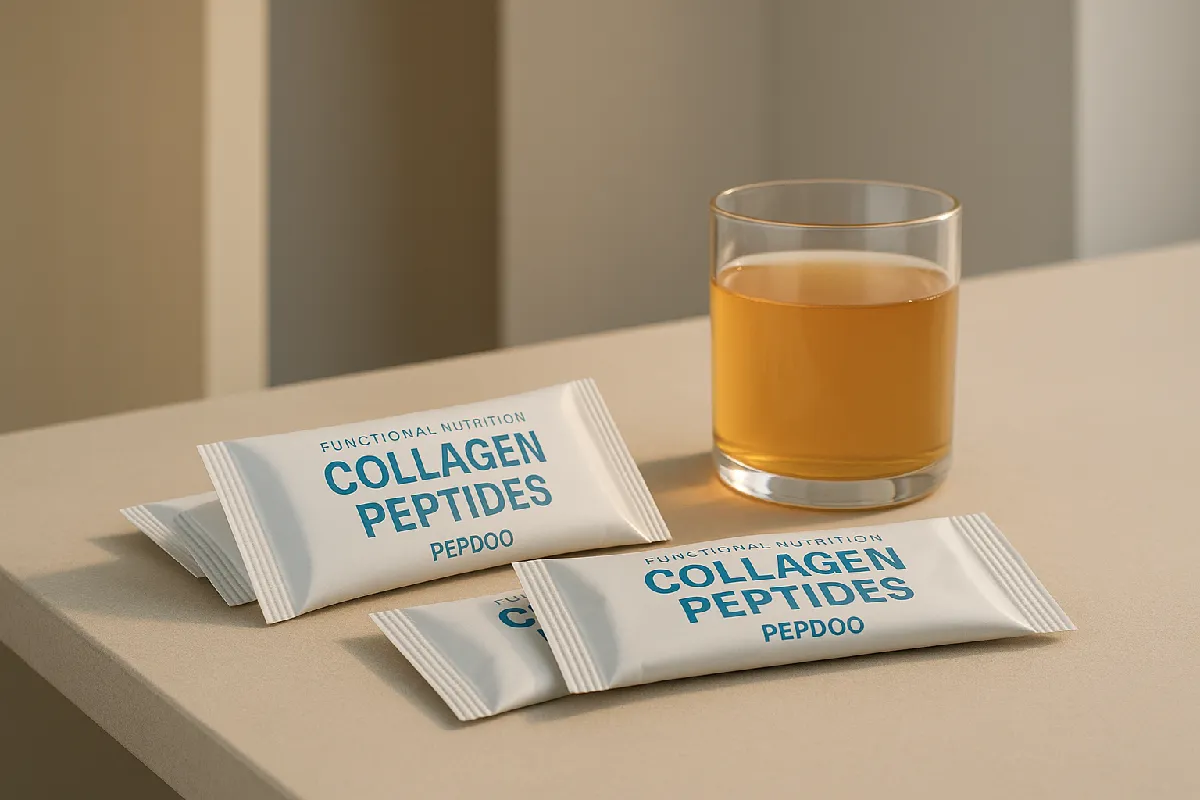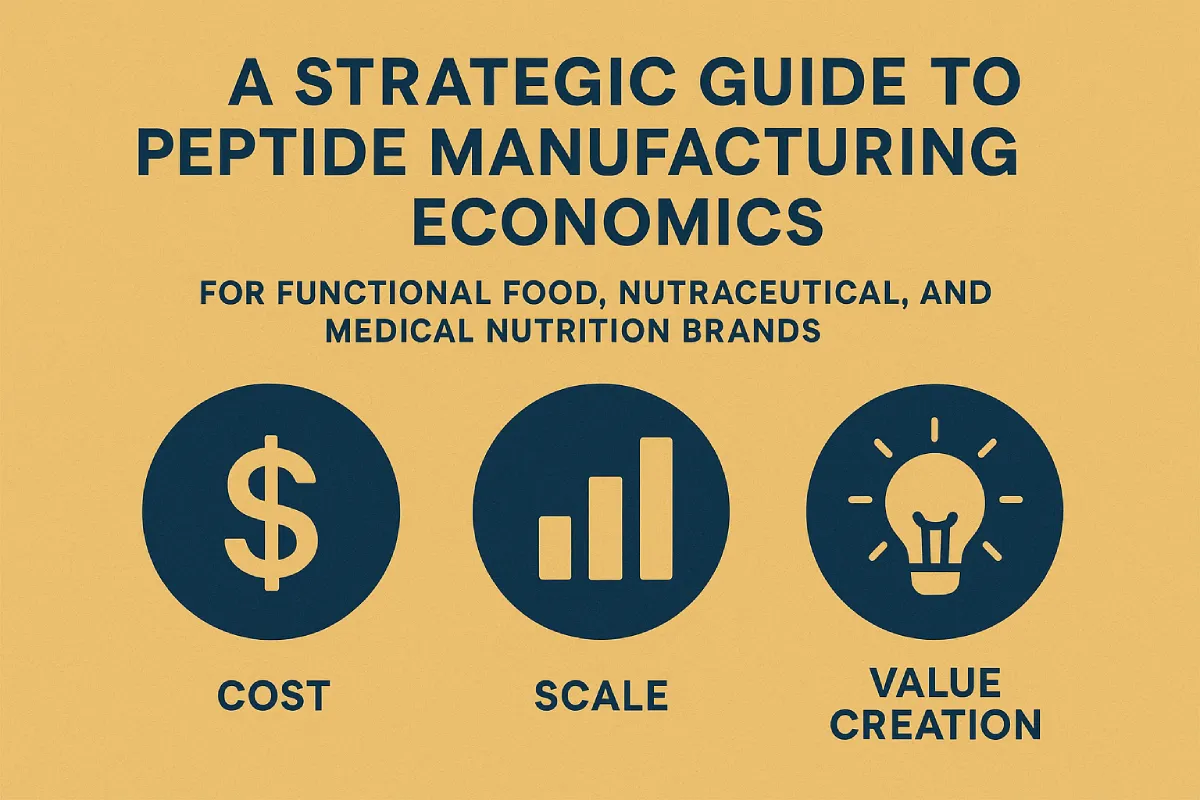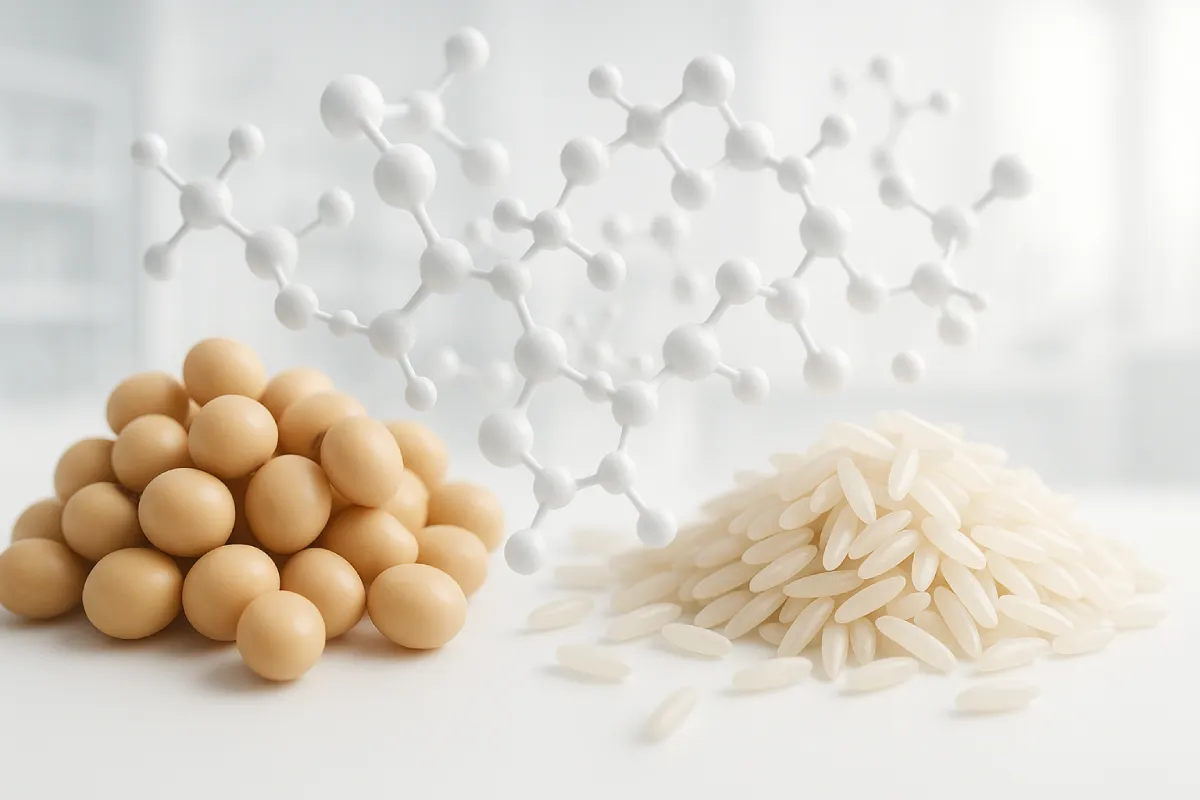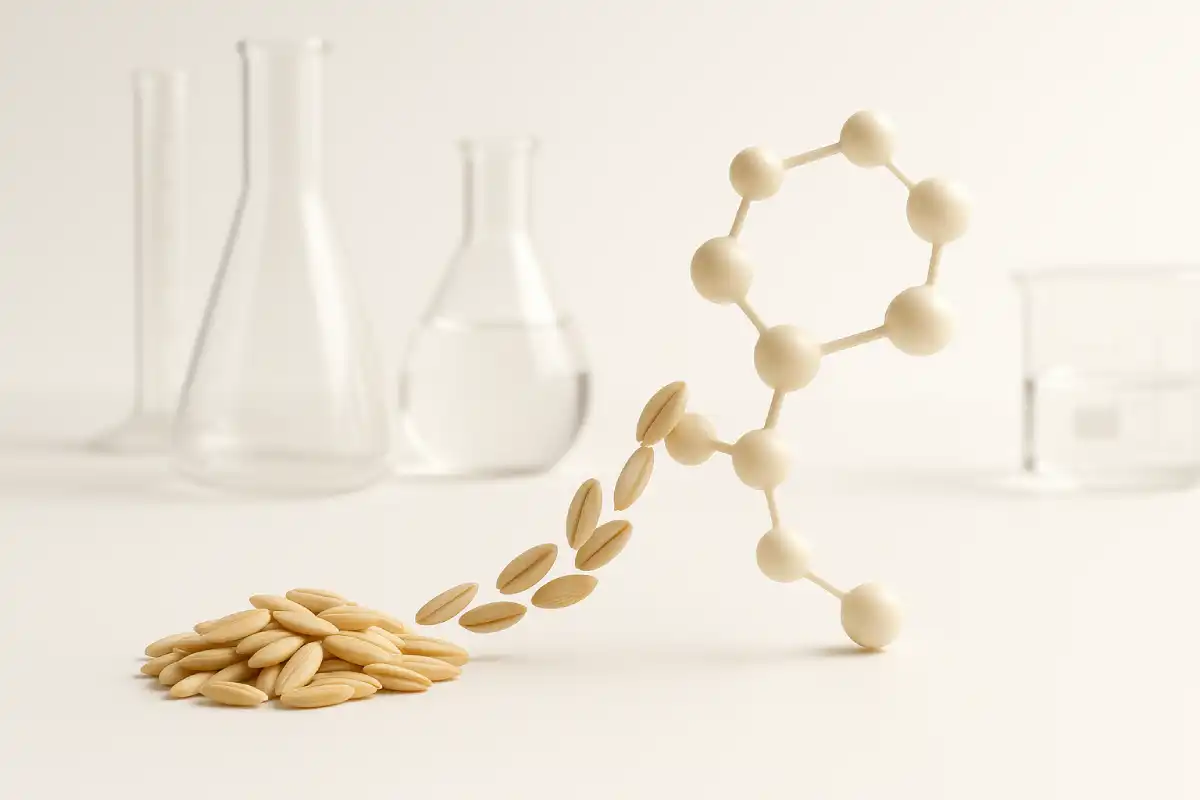Why Choosing the Right Peptide Manufacturer Matters More Than Eve
As the global demand for functional peptides accelerates, B2B buyers—from supplement brands and OEM/ODM manufacturers to R&D experts—face increasing pressure to find a reliable peptide manufacturer. Selecting the right supplier is no longer just about price or quantity; it’s about traceability, compliance, customization, and scientific validity.
This comprehensive guide will help procurement teams, formulation leads, and decision-makers identify what to look for in a peptide partner, how to avoid common pitfalls, and why working with a source manufacturer matters.
The Rise of Functional Peptides in B2B Markets
Functional peptides—short chains of amino acids with proven biological activity—have gained traction across categories like beauty-from-within, metabolic health, cognitive support, immune modulation, and sports recovery [1]. Their small molecular size allows for better absorption and targeted physiological effects.
From collagen peptides in nutricosmetics to organ-derived peptides in liver and spleen support formulations, peptides are no longer niche ingredients. Instead, they form the core of next-generation nutraceutical, cosmeceutical, and functional food products.
As innovation accelerates, B2B buyers require not only efficacy but also manufacturing transparency, compliance documentation, and supply chain reliability.

Key Criteria for Choosing a Peptide Manufacturer
1. Source Manufacturer vs. Trader: Know the Difference
Many companies present themselves as peptide suppliers but are, in reality, traders or brokers with no manufacturing capabilities. This limits control over raw materials, production quality, and delivery timelines.
PEPDOO® is a full-spectrum peptide source manufacturer, directly overseeing every stage—from raw material selection and enzymatic hydrolysis to purification, drying, and quality control. No intermediaries, no compromises.
Working with a source manufacturer means greater flexibility, faster innovation cycles, and better cost-to-performance ratios.
2. Manufacturing Technology and Scalability
Different peptides require distinct production processes, including multi-enzyme hydrolysis, microbial fermentation, or membrane separation. A reliable partner should:
- Offer customized hydrolysis processes tailored to raw material type
- Scale from pilot batches to commercial tons
- Maintain consistent peptide fingerprints across batches
At PEPDOO®, we employ advanced enzymatic hydrolysis with proprietary enzyme systems to yield high-purity, bioactive peptides optimized for bioavailability and solubility.
3. Quality Assurance and Certifications
Quality cannot be an afterthought. Your supplier must provide:
- Full Certificates of Analysis (COA)
- GMP, ISO22000, HACCP certifications
- Traceability systems from raw material to final product
Our peptides are tested batch-by-batch, with third-party lab reports available upon request.
4. Regulatory Support for Global Markets
Entering multiple markets requires alignment with local regulations. A trustworthy manufacturer should provide:
- Novel food registration support
- GRAS or FDA documentation
- Customs clearance and export documentation
Our regulatory team at PEPDOO® assists clients in preparing technical documentation tailored to the target region.
5. Customization and Formulation Services
Functional peptides are not one-size-fits-all. Brands increasingly demand:
- Custom peptide combinations
- Tailored solubility or taste profiles
- Pre-formulated RTDs, gummies, or capsules
We support clients from R&D ideation to market-ready formulation.
6. Ingredient Portfolio and Innovation Pipeline
At PEPDOO®, our offering includes:
- Marine-derived peptides (e.g., oyster, fish skin)
- Plant-based peptides (e.g., pea, pumpkin seed)
- Dairy peptides (e.g., casein, whey)
- Organ peptides (e.g., bovine liver, spleen)
- Patented ingredients with validated functions
Having access to a full peptide spectrum enables brands to diversify product lines and enter new health categories faster.

Red Flags to Watch for in a Peptide Supplier
Avoid these common pitfalls:
- No manufacturing address or vague production claims
- No COA or peptide activity data
- “Too good to be true” pricing with no scientific support
- Unstable supply or long lead times
Practical Steps to Vet a Manufacturer
- Send an RFI (Request for Information)
- Request a COA + peptide fingerprint profile
- Test samples for solubility, bioavailability, and taste
- Ask about compliance documentation
- Conduct a virtual or on-site audit
At PEPDOO®, we welcome audits and provide technical support throughout your procurement journey.
Case Example: From Delay to Market Speed
A sports nutrition brand in Southeast Asia switched to PEPDOO® after repeated delays from their previous supplier. Within 6 months, they:
- Reduced time-to-market by 40%
- Improved product solubility and stability
- Scaled supply from 100kg to 2 tons/month
Conclusion: Choose a Peptide Partner That Builds With You
In the peptide industry, trust is built on transparency, science, and the ability to deliver at scale. Whether you’re formulating a liver health capsule or a plant-based RTD, the right manufacturer can make or break your success.
PEPDOO® is your full-spectrum functional peptide source manufacturer—from bioactive ingredients to global delivery.
📢 Ready to Build Your Functional Peptide Portfolio?
🚀 Partner with PEPDOO® to launch clinically backed, high-performance peptide solutions for your next innovation.
- ✅ Request a technical datasheet
- ✅ Ask for formulation samples
- ✅ Schedule a consultation with our experts
FAQ
A source manufacturer controls the full production process. Distributors buy and resell. PEPDOO® is a certified source manufacturer.
Request COAs, ISO/GMP certifications, third-party test reports, and consider an audit. PEPDOO® provides complete transparency.
Peptide fingerprinting ensures product consistency and function through LC-MS or HPLC analysis.
Yes. Our peptides are designed for use in powders, capsules, RTDs, gummies, and more.
We offer regulatory dossiers, import/export documentation, and support with GRAS/novel food registration.
Yes. We provide study data, third-party validations, and support pilot studies for key ingredients.
Yes. We offer free or paid samples (depending on peptide type and destination) along with:
Technical specification sheets
Application suggestions
COA and solubility profiles
Use the contact form or email us to request a trial kit tailored to your product concept.
Yes. We offer sample kits and support testing with documentation and application guidance.
Yes. We offer formulation development, blending, and ready-to-market solutions for various formats.
We are a true source manufacturer offering full-spectrum peptide solutions, in-house R&D, and global support.
References
- Udenigwe, C. C., & Aluko, R. E. (2012). Food protein-derived bioactive peptides: production, processing, and potential health benefits. Journal of Food Science, 77(1), R11-R24.
- Hartmann, R., & Meisel, H. (2007). Food-derived peptides with biological activity: from research to food applications. Current Opinion in Biotechnology, 18(2), 163–169.
- Korhonen, H., & Pihlanto, A. (2006). Bioactive peptides: Production and functionality. International Dairy Journal, 16(9), 945–960.
- International Peptide Society. (2023). Global peptide ingredient market outlook.






